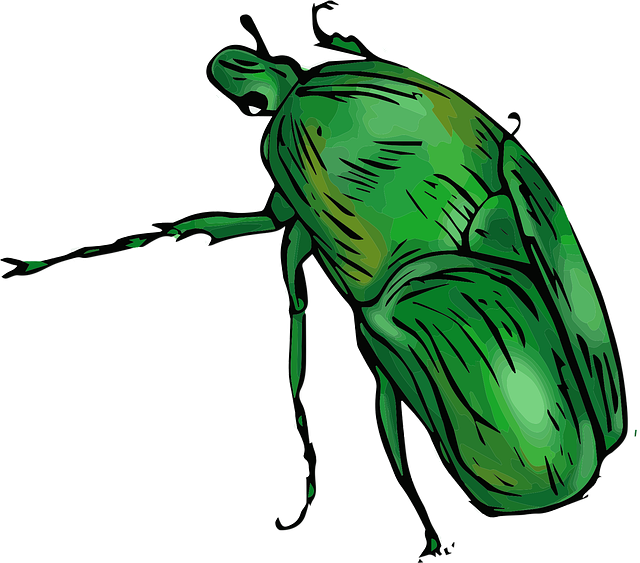In residential areas, stinging pests like bees, wasps, and hornets play dual roles in ecosystems but pose risks near homes. Effective pest control involves prevention, non-lethal deterrents, and professional nest removal services. Many traditional methods use harmful chemicals, prompting the search for pet-safe alternatives like essential oils and mechanical traps. Preventing encounters is crucial for child safety, with measures including sealing entry points and regular yard inspections. Professional residential stinging pest services offer tailored advice, safe solutions, comprehensive protection plans, and environmentally friendly practices to ensure a secure living environment.
Tired of sharing your home with unwanted stinging guests? Learn about child- and pet-safe methods for effective residential pest control. This comprehensive guide explores understanding stinging pests’ behavior in homes, pet-friendly alternatives, and crucial safety measures for kids. Discover the benefits of professional residential stinging pest services for a peaceful, sting-free living environment. Implement these strategies to reclaim your space without compromising safety.
Understanding Stinging Pests and Their Behavior in Residential Areas
In residential areas, stinging pests like bees, wasps, and hornets play a complex role in local ecosystems. While they contribute to pollination and pest control, their presence can pose significant risks, especially when nests are located near homes or within living spaces. Understanding these insects’ behaviors is crucial for implementing effective yet child- and pet-safe pest control methods. For instance, bees typically defend their hives aggressively only when threatened, while wasps and hornets may be more prone to stinging intruders without warning.
Residential stinging pest services should focus on prevention and non-lethal deterrents first. This involves identifying common entry points, such as gaps in walls or windows, and sealing them off. Using natural repellents like citronella plants or essential oils can also help keep these pests at bay. When encounters do occur, it’s advisable to contact professionals who can safely remove nests and educate residents on avoiding future interactions, ensuring the well-being of both humans and these often-misunderstood creatures.
Pet-Safe Alternatives for Pest Control: A Comprehensive Overview
Many traditional pest control methods rely on chemicals that can be harmful to pets and humans alike. For pet owners, finding safe alternatives for residential stinging pest services is a top priority. Fortunately, there’s a growing array of pet-safe options available, catering to every need from ant infestations to bee stings.
Natural repellents like essential oils—citronella, peppermint, and lemongrass among them—have gained popularity for their effectiveness in deterring pests without causing harm. Professional services now offer these eco-friendly solutions, applying them safely around homes and gardens. Additionally, there are mechanical traps designed to capture stinging insects without killing them, providing a humane and pet-friendly approach to pest management. These innovative alternatives ensure comfort and safety for both pets and homeowners, delivering peace of mind in pest-prone areas.
Child Safety Measures: Protecting Young Ones from Stinging Insects
When it comes to child safety, especially in residential areas, preventing stinging insect encounters is paramount. Young children and pets are particularly vulnerable to the painful and potentially dangerous effects of bee, wasp, and hornet stings. Implementing robust safety measures is crucial for any family seeking residential stinging pest services. Start by identifying and sealing entry points around the house, such as cracks in windows or doors, to deter insects from entering indoors. Regularly inspect yards and outdoor play areas, removing any potential nesting sites like old tires, cardboard boxes, or woodpiles.
Educating children about these pests and teaching them to recognize their behavior can be empowering. Encourage kids to avoid disturbing nests and to report any unusual insect activity to adults. Having a well-stocked first aid kit readily accessible is essential for immediate treatment in case of stings. Regular professional pest control services specializing in residential areas can also provide tailored advice and safe, effective solutions to protect children and pets from stinging insects while ensuring a peaceful outdoor environment.
The Role of Professional Residential Stinging Pest Services
When it comes to dealing with stinging pests like bees, wasps, and hornets in your home or around your property, turning to professional residential stinging pest services is a wise decision. These experts are trained to handle such situations safely and effectively, ensuring your family and pets remain unharmed. They employ specialized equipment and knowledge to identify the nest location, assess the extent of the infestation, and implement tailored solutions for complete removal.
Professional services offer peace of mind by providing comprehensive protection plans that prevent future infestations. They stay updated with the latest industry standards and environmentally friendly practices, ensuring the safety of your living space without compromising on quality. By delegating this task to professionals, you can avoid the risks associated with DIY methods and have a secure, pest-free environment for your children and pets.
When it comes to dealing with stinging pests in residential areas, a multi-faceted approach is key. By understanding these insects’ behavior, opting for pet-safe alternatives, implementing child safety measures, and considering professional residential stinging pest services, homeowners can effectively manage these nuisances while minimizing risks. Embracing these strategies ensures a safer, more comfortable living environment for both families and their pets, allowing everyone to enjoy their homes without the worry of stings.
